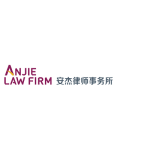On January 15 2020, US President Donald Trump and Chinese vice-premier He Liu signed a trade agreement which President Trump has described as "the biggest deal anybody has ever seen." The deal promises to be the first phase of a larger new trade agreement between the US and China, announcing a significant de-escalation in the trade war between the two giants that has dragged along for more than one year. Of particular interest to those in the pharmaceutical industry will be Sections C and D of the first chapter of the trade agreement, which outline China's commitments to improve protection and enforcement of pharmaceutical-related patent rights, and in particular to creating an effective mechanism for early resolution of patent disputes between generic drug companies and pharmaceutical innovators, or a Chinese drug patent linkage system, as many may like to put it.
Sceptics may argue that there is no guarantee that China will actually implement those provisions of the agreement, but no one can deny that China has shown genuine willingness to do more to protect pharmaceutical patents, especially when domestic innovative pharmaceutical companies have gradually surfaced after the economy has undergone such long-term growth. For example, one may recall that on May 12 2017, the then Chinese Food and Drug Administration (CFDA) issued a document entitled Policies Regarding the Promotion and Protection of Innovators' Rights in Drugs and Medical Devices (the policy document) for public comments, and several key policies including the drug patent linkage system were already outlined therein. Commentators who know China well would even appreciate that this policy document was actually inspired by a rare attempt from the top level of the Chinese government to promote innovations in drugs and medical devices, as stated in the Opinions on Deepening the Reform of Review and Approval System to Encourage the Innovations of Drugs and Medical Apparatuses, which was jointly issued by the General Office of the CPC Central Committee and the General Office of the State Council.
Consequently, it is not surprising that the Chinese government has already taken steps towards fulfilling these commitments, including scheduling the Supreme People's Court to commit to issue a judicial interpretation within this year to explore establishing a Chinese drug patent linkage system under current laws. However, there is a legal obstacle to establishing a Chinese drug patent linkage system under the current legal regime. This cannot be easily circumvented by judicial interpretation and will require legislative support.
A quick look of the US drug patent linkage system may help to illuminate this issue. As an important part of the US drug patent linkage system, the patentee can always challenge the generic drug company for submitting the drug approval application by bringing a patent infringement action against it, thus leading to a subsequent 30-month stay of the approval process. Notably, the aforesaid infringement action is not brought based on ordinary patent infringement theory but on a special provision of US patent law, alternatively known as the "Artificial Infringement" provision, as stipulated under 35 USC 271(e)(2), which immediately follows 35 USC 271(e)(1) that stipulates the well-known Bolar exception.
This Artificial Infringement provision under the US Patent Law was particularly tailored to the need for a drug patent linkage system. Previously, in accordance with the relevant provisions of the US Patent Law, only an act of making, using, selling, offering to sell or importing without authorisation the patented drugs during the patent protection term would consitute an infringement, and filing a drug approval application with the drug administration agency is obviously out of the protection scope of the patent. Logically speaking, with the Bolar exception, the patentee may have to wait for the generic drug company to start making and selling the patented drugs in the market before it can really enforce the patent, which is evidently unfavorable to the patentee. For this reason, in order to enable the patentee to stop any possible infringement in a timely manner, the Hatch-Waxman Act on the one hand introduces the Bolar exception, and on the other hand treats the registration behaviour as an infringement act (namely an artificial act of infringement), thus producing a legal effect to deter the generic drug company from carrying out the patent for purposes beyond speeding up the drug approval process.
On the contrary, although current Chinese Patent Law (which is the third revision of the Patent Law) specifically includes a Chinese-version of the Bolar exception provision in Article 69, it deliberately lacks a corresponding Artificial Infringement provision. This wasn't a surprise. For a long time, the Chinese domestic pharmaceutical industry had been short of research and development capabilities, and the Chinese government would prefer to first consider whether the availability of essential drugs is guaranteed rather than excessively raise the level of protection for drug patents. It did not want to hinder the production and marketing of generic drugs. This mindset in general set the policy tone underlying the third revision of the Chinese Patent Law in 2008. The State Intellectual Property Office, the agency authorised to draft the revisions of the Chinese Patent Law, announced in its Request for Deliberating the Draft Patent Law submitted to the State Council that "treating submitting drug approval application itself as an infringement action is a unique practice under US patent law and has not been widely accepted among all other countries in the world," and accordingly concluded that "there lacks sufficient reasons to adopt a similar practice in the Patent Law." It should be further noted that such a position had not been further challenged throughout the legislative process of the third revision of the Chinese Patent Law.
Accordingly, with no explicit Artificial Infringement provision being adopted in the Chinese Patent Law, it would go against the legislative intention to allow the drug patentee to lodge a patent infringement litigation against the generic drug company only because the latter has submitted a drug approval application, as promised in the trade agreement. Currently the Chinese legislature is working on the fourth revision of the Patent Law and hopefully such an Artificial Infringement provision will be incorporated therein, thus paving the way for the Chinese government to fulfil the promise made in the trade agreement.
Li Wu












